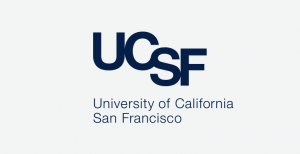 Earlier this month, we reported the retraction of several papers published by researchers with appointments at both the University of California, San Francisco (UCSF) and the San Francisco Veterans Administration (VA) Medical Center, led by a prominent urologist. Recently, we obtained the letters sent to the journals that retracted the papers, shedding some additional light on the case.
Earlier this month, we reported the retraction of several papers published by researchers with appointments at both the University of California, San Francisco (UCSF) and the San Francisco Veterans Administration (VA) Medical Center, led by a prominent urologist. Recently, we obtained the letters sent to the journals that retracted the papers, shedding some additional light on the case.
The most notable insight: The institutions couldn’t place blame for the misconduct that led to the three retractions on any one individual.
Through a public records request, Retraction Watch has obtained the letter sent to the American Association of Cancer Research (AACR) — which publishes Cancer Research and Clinical Cancer Research — as well as a similar one sent to the editor of the International Journal of Cancer. UCSF and the VA co-wrote both letters and sent them to request editorial action on articles that the research institutions had found to contain “clear evidence” of research misconduct.
Because the retraction notices for the papers published by Cancer Research and Clinical Cancer Research quoted the AACR letter heavily, there isn’t a lot more to reveal. But the letter does say that the committee “could not determine who was responsible” for the misconduct, even though the co-authors said it was Masahiro Sasaki, first author on both papers.
According to the letter, Sasaki:
returned to Japan and was not reachable despite repeated attempts. Other co-authors stated that Dr. Sasaki was responsible for producing the figures. The laboratory could not provide any of the primary data. Therefore, the Committee did not make a definitive determination of who was responsible for the fabrication or falsification of data that constitutes Research Misconduct.
We were unable to determine if Sasaki is still working in research. We have still not received responses to our request for comment from Sasaki’s UCSF and VA colleagues. In addition to the letters, we also requested the UCSF research misconduct investigation report; UCSF told us they were still looking into the matter.
The second letter was sent to the Editor-in-Chief of the International Journal of Cancer, regarding “Genistein mediated histone acetylation and demethylation activates tumor suppressor genes in prostate cancer cells,” published in 2008 and retracted in June.
The letter mentions that the paper suffered from figure manipulations, including “mirror images,” the same image used to represent different cell lines, and images “in which bands were grayscale inverted, flipped horizontally and overlaid on the original image.”
The letter said the figures in the paper:
contain clear evidence of manipulation and misrepresentation of the data. Given the number of such events, as well as their type (e.g., the flipping of bands), the evidence strongly indicates that these manipulations were done intentionally.
As with the first letter, the second letter did not specifically lay blame on a particular co-author, but indicated it could be another researcher who has left the country:
The first author Dr. [Nobuyuki] Kikuno returned to Japan and was not reachable despite repeated attempts. Other co-authors stated that Dr. Kikuno was responsible for producing the figures. The laboratory could not provide any of the primary data. Therefore, the Committee did not make a definitive determination of who was responsible for the fabrication or falsification of data that constitutes Research Misconduct.
The last author on all three retracted papers is Rajvir Dahiya, director of the Urology Research Center at UCSF.
Like Retraction Watch? Consider making a tax-deductible contribution to support our growth. You can also follow us on Twitter, like us on Facebook, add us to your RSS reader, sign up on our homepage for an email every time there’s a new post, or subscribe to our daily digest. Click here to review our Comments Policy. For a sneak peek at what we’re working on, click here.
Mol Carcinog. 2001 Sep;32(1):19-27.
CpG methylation of promoter region inactivates E-cadherin gene in renal cell carcinoma.
Nojima D1, Nakajima K, Li LC, Franks J, Ribeiro-Filho L, Ishii N, Dahiya R.
Author information
1
Department of Urology, Veterans Affairs Medical Center and University of California San Francisco, 94121, USA.
https://pubpeer.com/publications/6C0ED42F81A97C6216B665C62960C9
I do not see the 2 people blamed in the UCSF-VA letters, Sasaki, or Noboyuki Kikuno, in Mol Carcinog. 2001 Sep;32(1):19-27.
Proc Natl Acad Sci U S A. 2008 Feb 5;105(5):1608-13. doi: 10.1073/pnas.0707594105. Epub 2008 Jan 28.
MicroRNA-373 induces expression of genes with complementary promoter sequences.
Place RF1, Li LC, Pookot D, Noonan EJ, Dahiya R.
Author information
1
Department of Urology, Veterans Affairs Medical Center and University of California, San Francisco, CA 94121, USA.
https://pubpeer.com/publications/FE2E976E3E48723ADA56AE666D4D3A
I do not see the 2 people blamed in the UCSF-VA letters, Sasaki, or Noboyuki Kikuno, in Proc Natl Acad Sci U S A. 2008 Feb 5;105(5):1608-13.
Cancer Res. 2010 Apr 1;70(7):2809-18. doi: 10.1158/0008-5472.CAN-09-4176. Epub 2010 Mar 23.
Regulation of minichromosome maintenance gene family by microRNA-1296 and genistein in prostate cancer.
Majid S1, Dar AA, Saini S, Chen Y, Shahryari V, Liu J, Zaman MS, Hirata H, Yamamura S, Ueno K, Tanaka Y, Dahiya R.
Author information
1
Department of Urology, Veterans Affairs Medical Center and University of California at San Francisco, CA, USA.
2018 correction figure 5D.
http://cancerres.aacrjournals.org/content/78/13/3740
“In the original version of this article (1), the incorrect GAPDH loading control for the Western blot in Fig. 5D was published. The error has now been corrected in the recent online HTML and PDF versions of the article. The authors regret this error.”